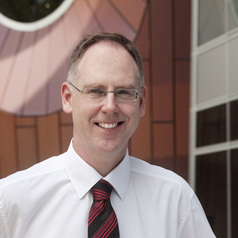
Peter Robertson
Peter was educated at the University of Otago, the University of New England and Simon Fraser University. He has been a visiting Scholar at the University of Otago, The University of British Columbia, Rutgers University and The University of Oxford.
Peter’s research is focused on the interactions between economic growth, economic development and international trade. He has also written on human capital accumulation, trade and environmental issues, the causes of long run growth through history, corruption, military spending and immigration.
Peter has also served as an expert consultant to the Productivity Commission and to the Department of Innovation, industry, Science and Research.
Less ![]()
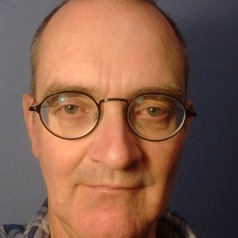
Peter Roger Alsop
Research and RHD Coordinator & Lecturer in Sound, Production, Lecturer in Interactive Art Media, VCA., University of Melbourne
I am an artist who works in interactive media, cross/multi modality creative arts, and have published and exhibited internationally. I currently work at the Victorian College of the Arts and have 12 RHD students in areas including design, interactivity, community arts, music, and media.
My PhD explored the relationship of creator, object and audience through ephemeral computer based artworks.
Less ![]()

Peter Schumer
Professor of Mathematics and Natural Philosophy, Middlebury
Peter Schumer is a Professor of Mathematics and is currently the John C. Baldwin Professor of Mathematics and Natural Philosophy. He has been at Middlebury College since 1983 after receiving his B.S. and M.S. degrees from Rensselaer Polytechnic Institute and a Ph.D. from University of Maryland at College Park.
He is the author of two books, Introduction to Number Theory (PWS) and Mathematical Journeys (Wiley) in addition to many articles in the fields of number theory and the history of mathematics. He is also the recipient of the Trevor Evans Award of the Mathematical Association of America for his article, "The Magician of Budapest".
He has had sabbaticals at University of California San Diego, San Jose State University, Stanford, and at Keio University and Doshisha University in Japan. Hobbies include playing go, juggling, seeing the latest films, travel, and hiking trails around Middlebury.
Less ![]()
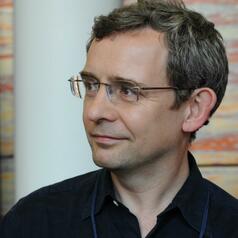
Peter Scott
Professor of International Business History, University of Reading
Peter Scott is Professor of International Business History at Henley Business School. He has undertaken extensive research on the history of commercial property development, housing provision, consumer expenditure, inequality, retailing, consumer durables, and other areas of economic, social, and business history.
Less ![]()
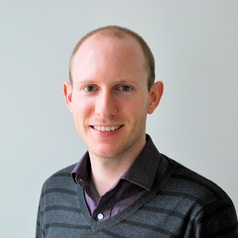
Peter Sivey
Associate Professor, School of Economics, Finance and Marketing, RMIT University
Dr Peter Sivey is an Associate Professor in the School of Economics, Finance and Marketing at RMIT University. He is working on research on healthcare markets including hospital waiting times, hospital performance reporting, doctor pricing and financial incentives for doctors
Less ![]()
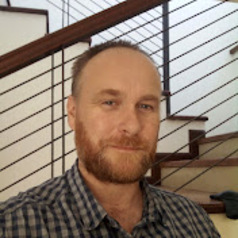
Peter Steggals
Visiting Researcher in Medical Sociology, Newcastle University
Peter Steggals is a UK-based Sociologist affiliated with Newcastle University. He focuses on the sociocultural and political dimensions of mental distress and disorder. He uses a broadly trans-disciplinary approach drawing on social psychology and anthropology, as well as cultural sociology and social theory, to analyse the semiotic dimension of psychosocial patterns of psychopathology and interpret them in their sociocultural, historical and political context.
After working in Forensic Psychology for the Prison Service and acting as a suicide and self-harm risk assessor, Steggals decided to research nonsuicidal self-injury in the wider population and from a sociological perspective. He secured an ESRC 1+3 grant and pursued an MA and PhD on this topic, eventually publishing his thesis as 'Making Sense of Self-Harm: The Cultural Meaning and Social Context of Nonsuicidal Self-Injury' (Palgrave Macmillan, 2015).
Steggals is currently working on a second book that applies the approach he has developed for self-injury to the whole range of psychosocial psychopathology. This is due to be published by Routledge in 2025.
Less ![]()
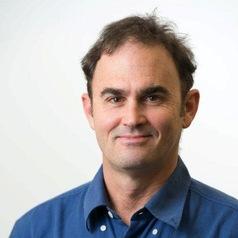
Peter Strelan
Professor, School of Psychology, University of Adelaide
Professor Peter Strelan is Head of the School of Psychology at The University of Adelaide. His research interest is predominantly on forgiveness, with a specific focus on the relation between justice and forgiveness.
Less ![]()
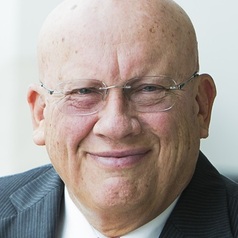
Peter Swan
Professor of Finance, UNSW Australia
Professor Peter Swan AM FASSA is currently in the School of Banking and Finance, Australian School of Business, University of New South Wales (UNSW). Swan completed his Honours Economics Degree at ANU, his PhD at Monash and after visiting positions at the University of Chicago and Rochester, joined the Economics faculty at ANU, then to a chair at AGSM, and was foundation professor in the Finance department at the University of Sydney prior to returning to UNSW.
He gained recognition in the Queen’s Birthday Honours list in 2003 with the Order of Australia (AM) and elected a Fellow of the Academy of Social Sciences in Australia in 1997. He undertakes research into corporate finance, corporate governance including board structure, executive compensation, stock market trading and design, M&A activity, and many other areas of finance and economics.
He has a significant public profile as an op ed writer for major newspapers. Peter has published over 100 articles and book chapters, with 49 articles in refereed international journals. He received distinguished awards in the form of UNSW Scientia Professor and ARC Professorial Fellow and has presented at top international conferences including WFA, AFA, EFA, FIRS, and Econometrics Society World Congress.
Less ![]()
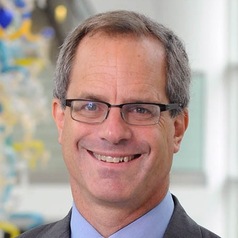
Peter Swire
Professor of Law and Ethics, Georgia Institute of Technology
Peter Swire is Professor of Law and Ethics at the Georgia Tech Scheller College of Business, and holds the J.Z. Liang Chair in the Georgia Tech School of Cybersecurity & Privacy. He has an appointment by courtesy with the School of Public Policy. He is Senior Counsel with Alston & Bird, LLP.
In 2019, the Future of Privacy Forum honored him for Outstanding Academic Scholarship. In 2018, Swire was named an Andrew Carnegie Fellow for research on "Protecting Human Rights and National Security in the New Era of Data Nationalism." In 2015, the International Association of Privacy Professionals awarded him its Privacy Leadership Award. In 2013, he served as one of five members of President Obama's Review Group on Intelligence and Communications Technology. Prior to that, he was co-chair of the global Do Not Track process for the World Wide Web Consortium. He is Senior Fellow with the Future of Privacy Forum and has been a member of the National Academies' Forum on Cyber-Resiliency.
Under President Clinton, Swire was the Chief Counselor for Privacy, in the U.S. Office of Management and Budget. He was the first person to have U.S. government-wide responsibility for privacy policy. In that role, his activities included being White House coordinator for the HIPAA medical privacy rule, chairing a White House task force on how to update wiretap laws for the Internet age, and helping negotiate the U.S.-E.U. Safe Harbor agreement for trans-border data flows. Under President Obama, he served as Special Assistant to the President for Economic Policy.
Swire is author of seven books and numerous scholarly papers. He has testified often before the Congress, and been quoted regularly in the press.
Swire graduated from Princeton University, summa cum laude, and the Yale Law School, where he was an editor of the Yale Law Journal.
Less ![]()
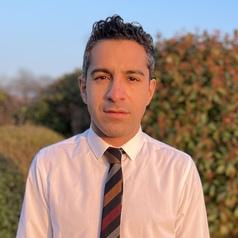
Peter Swoboda
Senior Lecturer, Cardiology, University of Leeds
Dr Peter Swoboda is a consultant cardiologist and senior Lecturer in the University of Leeds.
His main area of research is the relationship between exercise and cardiac disease. He is funded by the British Heart Foundation to carry out research into understanding risk of cardiac rhythm disturbance in sports people particularly as they get older. His other areas of research include studies to improve the diagnosis and treatment of heart failure.
His area of clinical expertise is in the field of cardiac imaging. He leads the cardiac MRI service at Mid Yorkshire Teaching Hospitals Trust and sits on the board of the British Society for Cardiovascular Magnetic Resonance (BSCMR).
Less ![]()
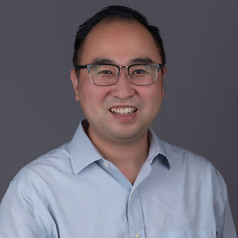
Peter Tanuseputro
Associate Professor, Division of Palliative Care, Department of Medicine, L’Université d’Ottawa/University of Ottawa
I'm a Public Health and Preventive Medicine Physician and an Associate Professor in the Division of Palliative Care, Department of Medicine, University of Ottawa. I practice family medicine in the community, with a focus on palliative home visits. My research focuses using linked health administrative databases to develop population perspectives on health care use and outcomes associated with aging and end of life in Ontario. I hold a Tier 2 Clinical Research Chair in Palliative Care and Predictive Analytics at the University of Ottawa.
Less ![]()
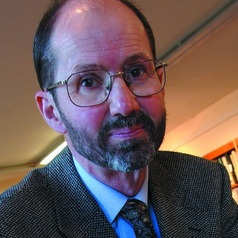
Peter Taylor-Gooby
Peter Taylor-Gooby is Research Professor of Social Policy at the University of Kent’s School of Social Policy, Sociology and Social Research.
He chaired the British Academy New Paradigms in Public Policy Programme (2010/2011) and is Chair of the REF Social Work and Social Policy and Administration panel 2011-15, a Fellow of the British Academy, a Founding Academician at the Academy of Social Sciences and, previously, a Fellow of the Royal Society of Arts and President of the British Association for the Advancement of Science, Sociology and Social Policy Section.
He participated in the Prime Minister’s No 10 ‘progressive consensus’ Round Table and advised the Prime Minister’s Strategy Unit between 2009 and 2010.
He has also written 23 books, including The Double Crisis of the Welfare State and What We Can Do About It, a new book published by Palgrave.
Less ![]()
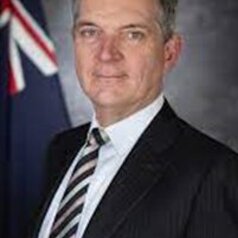
Peter Tesch
Visiting Fellow at the ANU Centre for European Studies, Australian National University
Peter Tesch is a visiting fellow at the ANU Centre for European Studies. He retired from the Australian Public Service in August 2022 after more than 35 years in the Department of Foreign Affairs and Trade and the Department of Defence, where he was deputy secretary for strategy, policy, and industry. He was ambassador to the Russian Federation (2016-2019) and ambassador to Germany (2009-2013).
Less ![]()
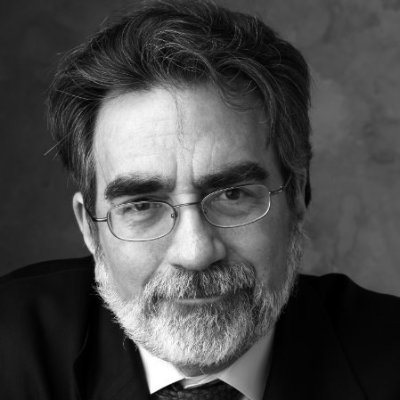
Peter Thomas
Peter Thomas is a Senior Vice President at the Zaner Precious Metal Division and he is considered one of the leading gold authorizes in the world today. As a licensed floor broker, he was a filling broker in the silver pit when silver ran to $55 an ounce. He currently manages a global cash desk which handles Refiners, Recyclers, Mining Operations and Coin & Bullion companies. He is constantly in demand for his insightful opinions drawn from his 35 years of metals trade to such news companies and magazines publishers as EconoTimes, Bloomberg News, WSJ, The Guardian,US News and World Review, Hard Assets, Kitco, and Modern Trader magazine. Contact him at @Goldbug111, (312) 277-0140 or [email protected].
Less ![]()
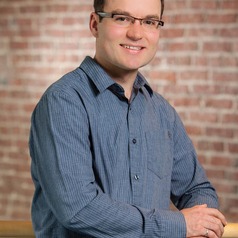
Peter Vanberkel
Professor, Department of Industrial Engineering, Dalhousie University
Dr. Peter T. Vanberkel's primary research involves improving healthcare operations using stochastic operational research methods. He is an Professor with the department of Industrial Engineering at Dalhousie University and a Staff Scientist at the IWK Health Centre. Dr. Vanberkel is a registered professional engineer with Engineers Nova Scotia and has worked as an industrial engineer at the IWK Health Centre, the Capital District Health Authority, Stylus Consulting Inc. and is co-founder of Stromline Technologies Inc. As a researcher he has worked with The Netherlands Cancer Institute - Antoni van Leeuwenhoek Hospital, the British Columbia Cancer Agency, the Nova Scotia Health Authority, the IWK Health Centre, Eastern Health Newfoundland, Halifax Biomedical, Emergency Medical Care Inc. (Medavie EMS Group of Companies), the NS Department of Health and Wellness, Atlantic Veterinary College, and others. Dr. Vanberkel’s research is funded by NSERC, CIHR, NSHRF, Atlantic Canada Opportunities Agency, Innovacorp and others.
Less ![]()
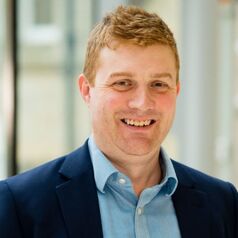
Peter Vaughan
Senior Lecturer, Nottingham Law School, Nottingham Trent University
Peter is a Senior Lecturer at Nottingham Law School and practising Chartered Trade Mark Attorney. Prior to joining NTU in 2020, Peter worked for a leading International Firm of Trade Mark and Patent Attorneys in their Cambridge office
He is the Deputy Course Leader on the IP Practitioner Portfolio of Courses. He teaches on and is module leader on the Professional Certificate in Trade Mark Practice, a course accredited by IPREG for trainee trade mark attorneys wishing to qualify. He is also module leader on the new Postgraduate Diploma in Commercial Intellectual Property course.
Peter is module leader and tutor on the Fundamentals of Intellectual Property and Contemporary Issues in Intellectual Property and Technology Law modules taught on the LLM courses. He supervises dissertations in the field of Intellectual Property.
Peter continues to practice as a trade mark attorney through his work volunteering at NLS Legal where he supervises the IP case work. The IP work at NLS Legal was shortlisted in 2021 for the “best new pro-bono activity” category.
Peter studied Law with German (Ba Hons) and an LLM in International Commercial Law both at the University of Nottingham. He qualified as a trade mark attorney in 2014. Prior to joining Nottingham Law School in March 2020 Peter worked for a leading International Firm of Trade Mark and Patent Attorney in their Cambridge office.
Less ![]()
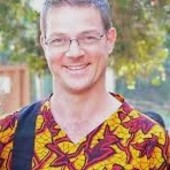
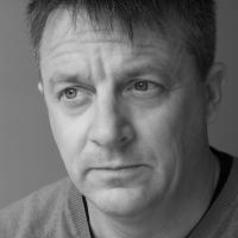
Peter Wells
Professor Peter Wells has vast experience of research into the global automotive industry around which he has developed his academic and theoretic interests in socio-technical transitions, business models, cultures of automobility and sustainability.
Research interests:
- Alternative local economies
- Automotive industry
- Celebrities, wealth and sustainability
- Corporate strategy
- Government transport and environment policy
- Mobility
- Sustainable business models
- Transitions to sustainability
Less ![]()
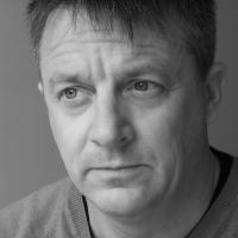
Peter Wells2
Professor of Business and Sustainability, Cardiff University
Professor Peter Wells has vast experience of research into the global automotive industry around which he has developed his academic and theoretic interests in socio-technical transitions, business models, cultures of automobility and sustainability.
Research interests:
- Alternative local economies
- Automotive industry
- Celebrities, wealth and sustainability
- Corporate strategy
- Government transport and environment policy
- Mobility
- Sustainable business models
- Transitions to sustainability
Less ![]()
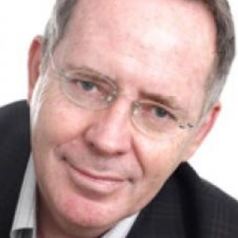
Peter Whiteford
Professor, Crawford School of Public Policy, Australian National University
Professor Peter Whiteford of the Crawford School of Public Policy at the Australian National University previously worked at the Social Policy Research Centre at the University of New South Wales. He has had extensive professional experience in the field of social security policy and research, in a range of different national contexts and at the international level. He worked as a Adviser in the Office of the Minister for Social Security in 1995-96 and previously as a Consultant to the Social Security Review and in Government Departments in Australia, as well as in University research centres in the United Kingdom and in Australia, and for the Organisation for Economic Co-operation and Development in Paris between 2000 and 2008.
In July 2008, he was appointed by the Australian government to the Reference Group for the Review of the Australian pension system, and in 2009 he was an invited keynote speaker for the Australian Treasury Conference on reform of the Australian tax system.
Less ![]()
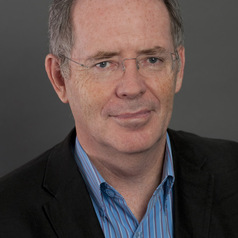
Peter Whiteford
Professor, Crawford School of Public Policy, Australian National University
Professor Peter Whiteford of the Crawford School of Public Policy at the Australian National University previously worked at the Social Policy Research Centre at the University of New South Wales. He has had extensive professional experience in the field of social security policy and research, in a range of different national contexts and at the international level. He worked as a Adviser in the Office of the Minister for Social Security in 1995-96 and previously as a Consultant to the Social Security Review and in Government Departments in Australia, as well as in University research centres in the United Kingdom and in Australia, and for the Organisation for Economic Co-operation and Development in Paris between 2000 and 2008.
In July 2008, he was appointed by the Australian government to the Reference Group for the Review of the Australian pension system, and in 2009 he was an invited keynote speaker for the Australian Treasury Conference on reform of the Australian tax system.
Less ![]()
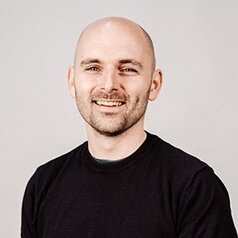
Peter Whitewood
Associate Professor of History, York St John University
I am an Associate Professor in History and Associate Head of the History, American Studies and War Studies programmes. I gained my PhD in History from the University of Leeds in 2013 and came to York St John University soon after. My research interests are broadly in the political and International histories of the early Soviet state and Stalin era.
My first book, The Red Army and the Great Terror: Stalin's Purge of the Soviet Military, provided a new explanation for Stalin's purge of the Red Army in 1937-1938. Taking a broader view of Soviet civil-military relations from 1917, I argued that this purge was launched from a position of panic and weakness, rather than being simply an expression of Stalin's desire to consolidate power. The book argues that without the military purge, there would have been no escalation of the Great Terror in 1937.
My second book, The Soviet-Polish War and its Legacy: Lenin's Defeat and the Rise of Stalinism explored how the Soviet-Polish War of 1919-20 shaped the early Soviet state in the 1920s. The Bolsheviks' stunning loss of this war in August 1920 encouraged authoritarian responses during a critical transitional decade. In short, rather than moderate the regime as often assumed, the loss of the war did the opposite. The aftershocks of war contributed to the emergence of a repressive totalitarian system and ultimately the transformation of the Revolution.
My current project looks at how the Bolshevik Party interpreted and aligned with established international humanitarian law after the 1917 revolution. Rather than entirely eschew established conventions, the Bolsheviks put both the Geneva and Hague conventions into practice, to differing degrees. Focusing chiefly on the Soviet Red Cross, the project will produce a new history of Soviet humanitarianism in the 1920s.
Postgraduate supervision:
I welcome contact from potential postgraduate students, especially in the following areas:
Soviet political and international history
The Stalin era
Totalitarianism
Modern European International history
Less ![]()

Peter Winter
Senior Research Associate, School of Sociology, Politics and International Studies (SPAIS), University of Bristol
I am a sociologist in the field of Science and Technology Studies (STS) specialising in the analysis of complex sociotechnical systems, particularly sociotechnical systems involving Artificial Intelligence (AI) applications. I am particularly interested in the challenges of developing, integrating, and implementing AI technologies for use in real-world contexts (e.g. the role of regulation, trust and transparency) as well as their effects on professional practice and organisational structure.
I am currently working on the RAI UK-funded 'Transparency Regulation Toolkits for Responsible AI' project, researching how Small to Medium Sized Enterprises (SMEs) in the UK and EU interpret and implement AI transparency rules in practice.
I have also undertaken research on the regulation of autonomous systems with evolving functionality, the implementation of digital twins in cardiovascular medicine, the development of medical AI for the early diagnosis of a rare disease, the improvement of public inclusivity in robotics design, the training of visual expertise in medical and radiography education, the disclosure of mental health in professional sport, and the provision of mental health support for medical students. Prior to academia, I provided research support to two independent charities (The Mentor Ring and The Older People's Commissioner for Wales) in the voluntary sector and worked as an investment associate for Legal and General PLC (Cardiff, UK).
Less ![]()
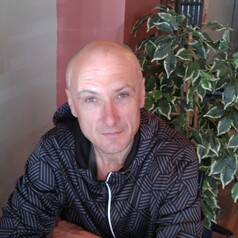
Peter Zizler
Professor, Mathematics, Mount Royal University
Peter Zizler holds a PhD degree in mathematics from the University of Calgary. Currently, Dr. Zizler is a professor of mathematics at Mount Royal University in Calgary, Alberta, Canada. While Peter's main research endeavors center around linear algebra and its applications to data science, he has published several research articles in statistics, real and functional analysis as well as mathematics education. Peter has published several research journal papers on recent advances in the applications of the Gini Index beyond the classical areas such as economics.
Less ![]()

Peter A Noble
Affiliate Professor of Microbiology, University of Washington
As a seasoned scientist, serving as a Principal Investigator and Full Professor, I bring a comprehensive interdisciplinary expertise encompassing critical thinking, problem-solving, innovative discoveries, scientist training, and adept leadership in collaborative endeavors.
Less ![]()
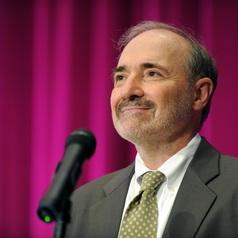
Peter A. Coclanis
Professor of History; Director of the Global Research Institute, University of North Carolina at Chapel Hill
I am an economic historian who works in the fields of US, Southeast Asian, and global economic history. I have published widely in these areas, both in scholarly venues and in magazines and newspapers. I have been at UNC-Chapel Hill since 1984, but have also taught at Columbia and Harvard. In 2005 I was Raffles Professor of History at the National University of Singapore.
Less ![]()
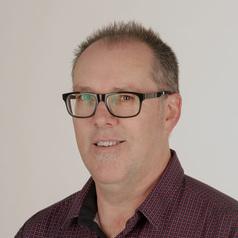
Peter C. Pugsley
Associate professor, Department of English, Creative Writing and Film, University of Adelaide
Peter C. Pugsley teaches in the areas of Asian screen media and film theory at the University of Adelaide. He is the author of four books on Asian film, and has published widely on Japanese cinema. He is an active supporter of community radio.
Less ![]()

Peter J. Maurits
Postdoctoral Fellow, Faculty of Humanity, Social Sciences, and Theology, Friedrich-Alexander-Universität Erlangen-Nürnberg
Less ![]()
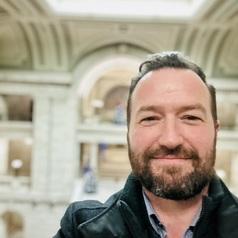
Peter J. Miller
Associate Professor of Classics, University of Winnipeg
I'm a professor in the Department of Classics at the University of Winnipeg. My research areas are ancient Greek poetry and ancient and modern athletics. I teach courses in ancient Greek and on Classical literature as well as on ancient sports and its modern reception.
Less ![]()
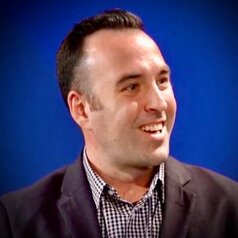
Peter Malachy Ryan
Associate Professor of Public Relations, Mount Royal University
Dr. Peter Ryan, APR, is an associate professor in the Department of Public Relations at Mount Royal University in Calgary; he also currently serves as the President of the Calgary chapter of the Canadian Public Relations Society (CPRS) and sits on the advisory board of the Centre for Crisis and Communication (CCRC).
Less ![]()
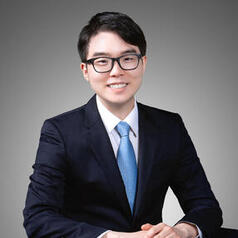
Peter S. Park
Postdoctoral Associate at the Tegmark Lab, Massachusetts Institute of Technology (MIT)
Dr. Park applies mathematics, the social sciences, and the cognitive sciences to research human-AI dynamics. To illustrate, OpenAI's mission is to create "highly autonomous systems that outperform humans at most economically valuable work." If and when we humans cede our decision-making to these highly autonomous AIs, will we come to regret this potentially irreversible choice? Dr. Park investigates this question by using a variety of tools, such as empirical studies of current AI systems, relevant data from the evolutionary or historical past, and mathematical models of what a hypothetical AI-led future may look like.
Less ![]()
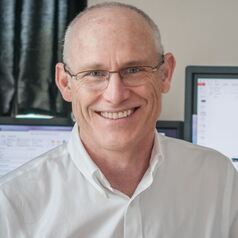
Peter S. Thorne
University of Iowa Distinguished Chair, Professor of Environmental Health, University of Iowa
Dr. Peter Thorne holds the University of Iowa Distinguished Chair and is professor in the UI College of Public Health’s Department of Occupational & Environmental Health. He is Director of the Human Toxicology Program and co-director of the Environmental Health Sciences Research Center. He has held a number of prominent national leadership positions, including serving as chair of the U.S. Environmental Protection Agency’s Science Advisory Board and chair of the National Academy of Sciences Committee on Toxicology. His research interests include: Health impacts of climate change; Environmental risk factors for asthma; Toxicity of inhaled engineered nanomaterials; Environmental exposures to persistent chemicals and their health outcomes; Exposure assessment strategies and methodologies for bioaerosols and aeroallergens; and Mechanisms of bioaerosol-induced lung inflammation.
Less ![]()
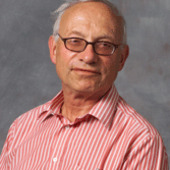
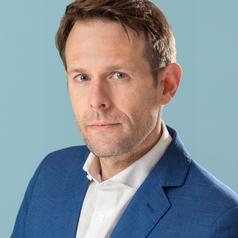
Peter Thisted Dinesen
Professor of Political Science, University of Copenhagen
Peter Thisted Dinesen is a Professor of Political Science at the University of Copenhagen and an Honorary Professor of Political Science at University College London. His primary research interests include responses to immigration, social trust, political participation, and mental health.
Less ![]()
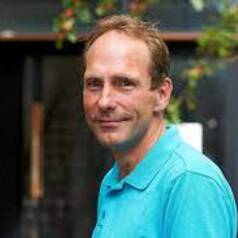
Peter Viggo Jakobsen
Associate professor, Royal Danish Defence College
Peter Viggo Jakobsen is a professor at the Institute for Strategy at the Royal Danish Defence College, and a professor (part-time) at the Center for War Studies, University of Southern Denmark. He has written extensively on civil-military cooperation and the integrated approach, coercive diplomacy, NATO, peace and stabilisation operations, the UN and the use of military force. He has been an advisor and consultant for several governments and international organisations, and frequently comments on defence and security issues in international media. He holds a PhD from the University of Aarhus, Denmark, in international relations.
Less ![]()
- Market Data



















